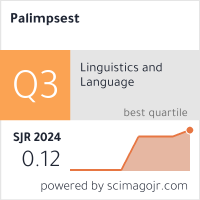THE ROLE OF HISTORY IN LEARNING FOREIGN LANGUAGES: A SPECIAL FOCUS ON THE GERMAN LANGUAGE
DOI:
https://doi.org/10.46763/PALIM251019215bAbstract
Although the impact of historical and cultural factors on foreign language learning has long been recognized, history remains underrepresented in German language teaching. This article highlights the relevance of integrating historical content into language acquisition from both theoretical and empirical perspectives, demonstrating how such integration can enhance learners’ motivation, language proficiency, and intercultural empathy. A curriculum that systematically incorporates historical awareness—through texts, documents, or discussions of key events—can lead to more sustainable and meaningful learning outcomes. The article also provides practical recommendations for curriculum design and emphasizes the need for further research in this area.
Keywords: foreign language teaching; German as a foreign language; history; intercultural competence; motivation.
Downloads
Downloads
Published
Issue
Section
License
The intellectual property and copyright on the original content of all scientific contributions in the published paper shall remain with the authors. Authors give permission to the JAPS owner to publish the paper. All authors agree to publish the paper under Attribution-NonCommercial-NoDerivatives 4.0 International license (CC BY-NC-ND 4.0)


